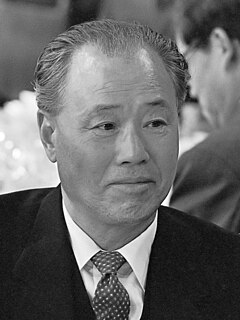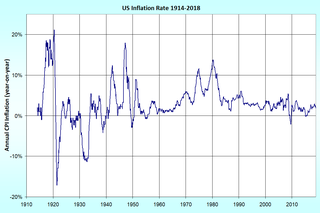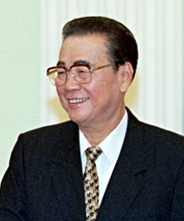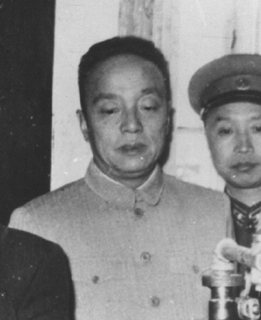Chronology
- 1st Plenary Session
- Date: November 2, 1987
- Location: Beijing
- Significance: Zhao Ziyang was elected General Secretary. 18-member Politburo, 5-member Politburo Standing Committee and 5-member Secretariat were elected. Deng Xiaoping was re-elected Chairman of the Central Military Commission, and Chen Yun replaced him as Chairman of the Central Advisory Commission. Jiang Zemin was elected to the Politburo for the first time.

Beijing, alternatively romanized as Peking, is the capital of the People's Republic of China, the world's third most populous city proper, and most populous capital city. The city, located in northern China, is governed as a municipality under the direct administration of the central government with 16 urban, suburban, and rural districts. Beijing Municipality is surrounded by Hebei Province with the exception of neighboring Tianjin Municipality to the southeast; together, the three divisions form the Jingjinji metropolitan region and the national capital region of China.

Zhao Ziyang was a high-ranking statesman in China. He was the third Premier of the People's Republic of China from 1980 to 1987, Vice Chairman of the Communist Party of China from 1981 to 1982, and General Secretary of the Communist Party of China from 1987 to 1989. He lost power in connection with the reformative neoauthoritarianism current and his support of the Tiananmen Square protests of 1989.

The General Secretary of the Central Committee of the Communist Party of China is head of the Communist Party of China and the highest-ranking official within the People's Republic of China. The General Secretary is a standing member of the Politburo and head of the Secretariat. The officeholder is usually considered the "paramount leader" of China.
- 2nd Plenary Session
- Date: March 15–19, 1988
- Location: Beijing
- Significance: List of candidates for top State posts to be submitted to the 7th National People's Congress and the 7th National Committee of the Chinese People's Political Consultative Conference were adopted.
The 7th National People's Congress was in session from 1988 to 1993. It held five sessions in this period.

The Chinese People's Political Consultative Conference, also known as the People's PCC or simply the PCC (政协), is a political legislative advisory body in the People's Republic of China. The organisation consists of delegates from a range of political parties and organisations, as well as independent members. The proportion of representation of the various parties is determined by established convention, negotiated between the parties.
- 3rd Plenary Session
- Date: September 26–30, 1988
- Location: Beijing
- Significance: A program on the reform of prices and wages was taken, urging the State Council to put inflation under strict control.

The State Council, constitutionally synonymous with the Central People's Government since 1954, is the chief administrative authority of the People's Republic of China. It is chaired by the premier and includes the heads of each of the cabinet-level executive departments. Currently, the council has 35 members: the premier, one executive vice premier, three other vice premiers, five state councilors, and 25 additional ministers and chairs of major agencies. In the politics of the People's Republic of China, the Central People's Government forms one of three interlocking branches of power, the others being the Communist Party of China and the People's Liberation Army. The State Council directly oversees the various subordinate People's Governments in the provinces, and in practice maintains membership with the top levels of the Communist Party of China.

In economics, inflation is a sustained increase in the general price level of goods and services in an economy over a period of time. When the general price level rises, each unit of currency buys fewer goods and services; consequently, inflation reflects a reduction in the purchasing power per unit of money – a loss of real value in the medium of exchange and unit of account within the economy. The measure of inflation is the inflation rate, the annualized percentage change in a general price index, usually the consumer price index, over time. The opposite of inflation is deflation, a sustained decrease in the general price level of goods and services.
- 4th Plenary Session
- Date: June 23–24, 1989
- Location: Beijing
- Significance: The meeting was held after the suppression of the Tian'anmen Square protests. Li Peng delivered a report strongly criticizing Zhao Ziyang for his attitude during the "anti-party, anti-socialist turmoil": he was accused of "passive attitude toward the Four Cardinal Principles" and the "oppose bourgeois liberalization policy", and neglecting "party building, the spiritual civilization construction and ideological and political work". He was thus removed from his capacities of General Secretary, Politburo Standing Committee member, Politburo member and Central Military Commission first vice-chairman, with Jiang Zemin filling his posts as General Secretary and Politburo Standing Committee member.

Li Peng was a Chinese politician. Known as the "Butcher of Beijing" for his role in the Tiananmen Square massacre, Li served as the fourth Premier of the People's Republic of China from 1987 to 1998, and as the Chairman of the Standing Committee of the National People's Congress, China's top legislative body, from 1998 to 2003. For much of the 1990s Li was ranked second in the Communist Party of China (CPC) hierarchy behind then Party General Secretary Jiang Zemin. He retained his seat on the CPC Politburo Standing Committee until his retirement in 2002.
The Four Cardinal Principles were stated by Deng Xiaoping in 1979 and are the four issues for which debate was not allowed within the People's Republic of China.
- 5th Plenary Session
- Date: November 6–9, 1989
- Location: Beijing
- Significance: Deng Xiaoping resigned as Chairman of the Central Military Commission, and Jiang Zemin took over the post. Yang Shangkun was appointed CMC first vice-chairman.

Yang Shangkun was President of the People's Republic of China from 1988 to 1993, and was a powerful Vice Chairman and Secretary-General of the Central Military Commission under Deng Xiaoping. He married Li Bozhao in 1929, one of the few women to participate in the Long March, as did Yang.
- 6th Plenary Session
- Date: March 9–12, 1990
- Location: Beijing
- Significance: In the official communique, the economic reform was exalted, but the growth of "bureaucracy, subjectivism, formalisticism, passivity and corruption" was denounced as well.
- 7th Plenary Session
- Date: December 25–30, 1990
- Location: Beijing
- Significance: A decision on the "Program of the National Economy and Society Development Decade" and guidelines for the 8th Five-Year Plan were adopted.
- 8th Plenary Session
- Date: November 25–29, 1991
- Location: Beijing
- Significance: A decision to enforce family household management of land was taken, in order to secure a bigger output of grain production.
- 9th Plenary Session
- Date: October 5–9, 1992
- Location: Beijing
- Significance: Preparations for the Party's 14th National Congress were made. The critical assessment on Zhao Ziyang remained unchanged and so he was not listed as a candidate for the 14th Central Committee.
